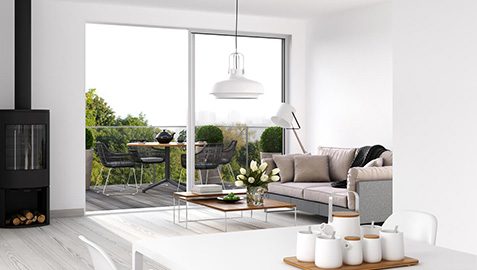Where do I live now I’m separated? It’s one of those questions anyone who’s gone through a separation has to answer. It’s also one of those questions that typically needs to be answered in circumstances which are less than ideal. What you might not know is it’s also one of those decisions which can have lasting implications for you, the ex and, if you have them, your kids.
Separation is tough. It’s tough emotionally, it’s tough financially and it’s almost always tough logistically. And in the midst of your world being turned upside down you’re constantly called upon to make life altering decisions. Where you live post separation is potentially one of those.
If you have children then, in any decision you make during this time, the kids must remain a top priority. If the kids are going to live with you, at least for the foreseeable future then staying in the family home will most likely be preferable, unless that is not possible in your particular circumstance.
That said, there are no set rules on who can stay in the family home and both partners have the right to remain. But what are your options?
You both remain in the home
As neither of you have the right to make the other leave it might be that you both decide to stay.
Whilst this option isn’t for everyone some do choose to live as a separated couple in the same house. Though it should be noted that where this occurs the Family Court of Australia will need to support any application for divorce with an affidavit. http://www.familycourt.gov.au/wps/wcm/connect/fcoaweb/reports-and-publications/publications/separation/separated-but-living-under-one-roof
If your circumstances permit there are some benefits of this type of arrangement. For example, neither you nor your ex-partner have to bear the cost of setting up another dwelling, nor have double living expenses or even the additional time and cost associated with visiting the kids. This arrangement might also benefit the children with a slower transition to full separation.
In our experience this type of arrangement will only apply to a small number of couples. If this is not the case an alternative below should seriously be considered. Living in an environment with conflict is not good for anyone at this time.
You stay with the kids and your ex-partner goes
If the children are going to live with you, staying in the family home will minimise the impact on the kids and may be your best option. There are many benefits to staying:
- There is no change for the children. Their home environment remains familiar
- You don’t have set up costs elsewhere
- You don’t have to change your address, many places would need to be notified of this change, including but not limited to the address on your license, insurance, registration, Medicare, government departments, super funds, gas, electricity, phone, internet, and schools.
- You will have access to your documentation for future property negotiations (if required)
- If you have pets they can stay
- It is easier to stay then try and get back in later
Your ex-partner stays and you go with the kids
If you leave with the kids carefully consider all of the items mentioned above. Importantly, be prepared for a circumstance where a change in residential address impacts where your children go to school.
Ensure before leaving the house you take critical and important documentation such as passports, bank statements, title documents, birth certificates etc. This will be important later.
Also, take every opportunity to remove items of sentimental value. As distasteful as it might seem these types of possessions are often used as leverage in negotiations and their retrieval can become a costly exercise.
You both go
It may be the case that neither of you can afford to stay nor wish to stay. Maybe you both want a fresh start or maybe you simply can’t afford it.
If this is the case you will need to list the property for sale, and in the case of a rental property, give the required notice to the real estate agent and seek alternative accommodation.
Regardless, where children are involved, you will need to reach agreement with each other about where they will live and what the visitation arrangements will be.
Working your way through this is a highly disruptive exercise and can feel somewhat overwhelming at times. If you need help to make sure you’ve got all of your ducks in a row do not hesitate to talk with one of our family law experts on (02) 6333 4400.
It’s better to be on the front foot.






